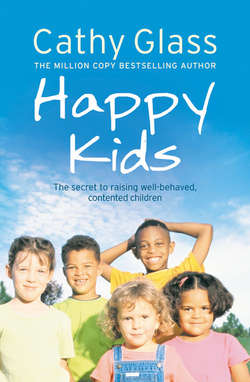Читать книгу Happy Kids: The Secrets to Raising Well-Behaved, Contented Children - Cathy Glass, Cathy Glass - Страница 7
Sleep
ОглавлениеSleep takes on a whole new meaning with the arrival of a baby, simply because babies don’t. Well, they do, but not necessarily when the parents need to sleep, which is at night, and preferably for seven unbroken hours. A newborn baby can’t sleep through the night, as it can’t hold enough food in its tiny stomach. So nature has built in a fail-safe way of making sure baby is fed: mouth wide open, it screams the house down. This hunger cry is not the cry of a child who has hurt itself and needs comforting but nature’s inbuilt response to hunger, which guarantees that baby can’t be ignored, is fed and therefore survives and thrives. We have to accept that babies cry when they need feeding.
But why is baby still crying when it has been fed and changed? Good question. While baby manuals and child psychologists offer a wealth of possibilities for a baby not settling – from the trauma of birth to sheer bloody-mindedness – no one knows for sure. Other reasons may include being too warm, or cold, needing to be held, boredom, tiredness, thirst, colic and illness, but the end result is the same: crying.
Baby has just spent nine months tucked up snugly in a warm, wet womb, and no matter how pretty the nursery, it’s hardly a good substitute for this previous all-enveloping embrace – well, not to begin with at least. If baby is to settle when you put him to sleep or go back to sleep if he’s woken he will require a lot of reassuring. You will need to reassure baby that his needs will be met, as well as teaching him what you want in respect of routine, sleeping, etc. This can be achieved by using the 3Rs.
